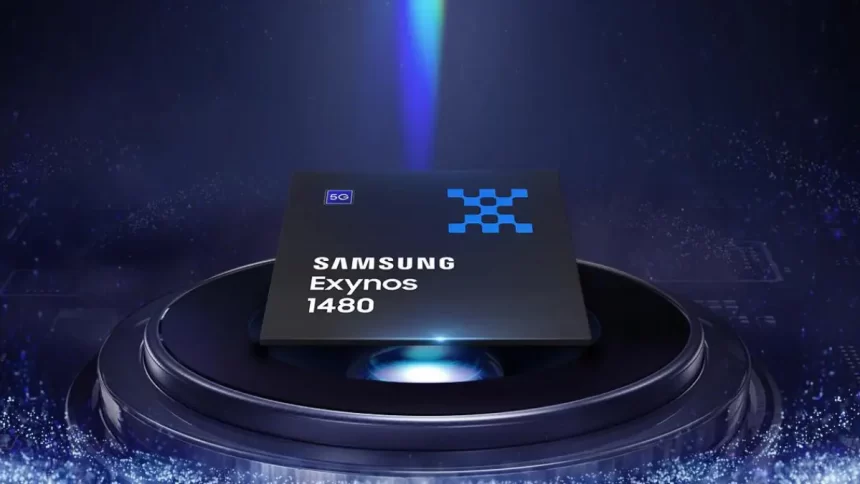Samsung has officially introduced the Exynos 1480 4nm 5G SoC, marking a significant advancement in mobile processing technology. This chipset, succeeding the Exynos 1380, powers the recently launched Galaxy A55 smartphone, showcasing notable improvements in performance, power efficiency, and AI capabilities. Let’s delve into the details of this cutting-edge SoC:
CPU Performance and Power Efficiency
The Exynos 1480 boasts enhanced CPU performance and power efficiency, featuring Cortex-A78 and Cortex-A55 CPUs with increased clock speeds. Notably, the new Xclipse 530 GPU, based on the latest mobile AMD RDNA architecture, offers a substantial leap in graphics processing capabilities. Samsung highlights a 22% improvement in efficiency over its predecessor, translating to reduced power consumption and extended battery life. Users of the Galaxy A55, powered by the Exynos 1480, have reported noticeable enhancements in battery performance compared to its predecessor, the Galaxy A54.
GPU Performance
The Xclipse 530 GPU, leveraging the AMD RDNA 2 architecture, delivers a remarkable 53% boost in performance compared to the Mali-G68 MP5 GPU found in the Exynos 1380. This enhancement promises smoother graphics rendering and improved gaming experiences on devices equipped with the Exynos 1480. The SoC supports Full HD+ displays with refresh rates up to 144Hz, up to 200MP camera capabilities, and 4K 30fps video recording, maintaining parity with its predecessor. Additionally, the modem has undergone enhancements, and the Exynos 1480 now supports Wi-Fi 6E connectivity, ensuring faster and more reliable wireless connections.
AI Performance
Samsung emphasizes a significant 4x improvement in AI performance with the Exynos 1480 compared to its predecessor. This advancement underscores the SoC’s ability to handle complex AI tasks more efficiently, enhancing user experiences across various applications and services.
Availability and Future Prospects
The Samsung Exynos 1480 chip has already made its debut in the Galaxy A55 smartphone, setting the stage for its integration into upcoming Samsung devices, including smartphones and potentially tablets. With its impressive blend of performance, efficiency, and cutting-edge features, the Exynos 1480 is poised to elevate the mobile computing experience for users seeking top-tier performance and capabilities.
Samsung’s Exynos 1480 represents a significant leap forward in mobile processing technology, offering a compelling combination of performance, efficiency, and advanced features. As this chipset continues to power Samsung’s latest devices, users can expect a seamless and powerful computing experience that pushes the boundaries of mobile technology.






